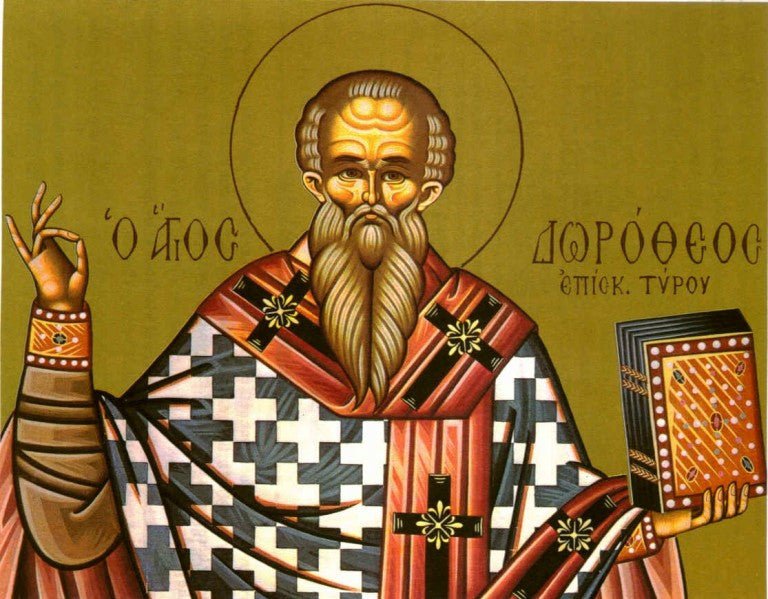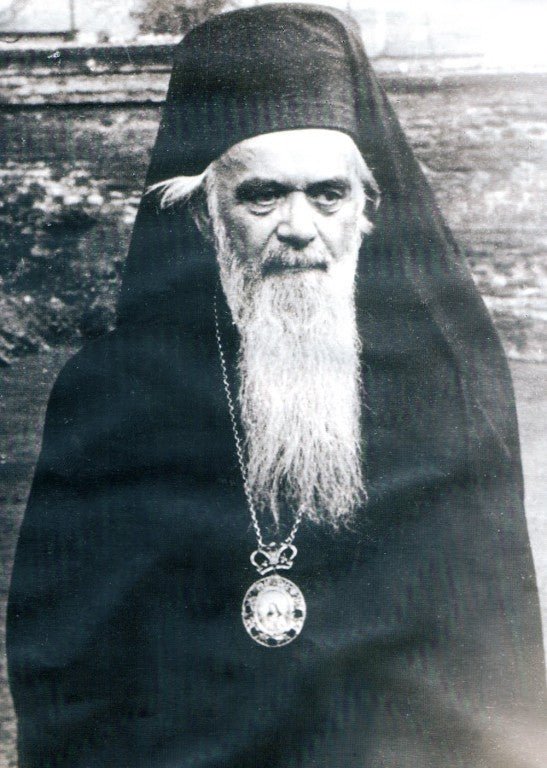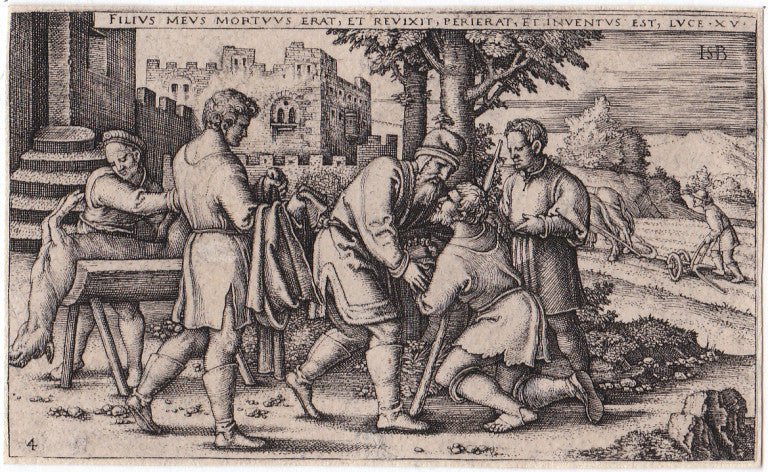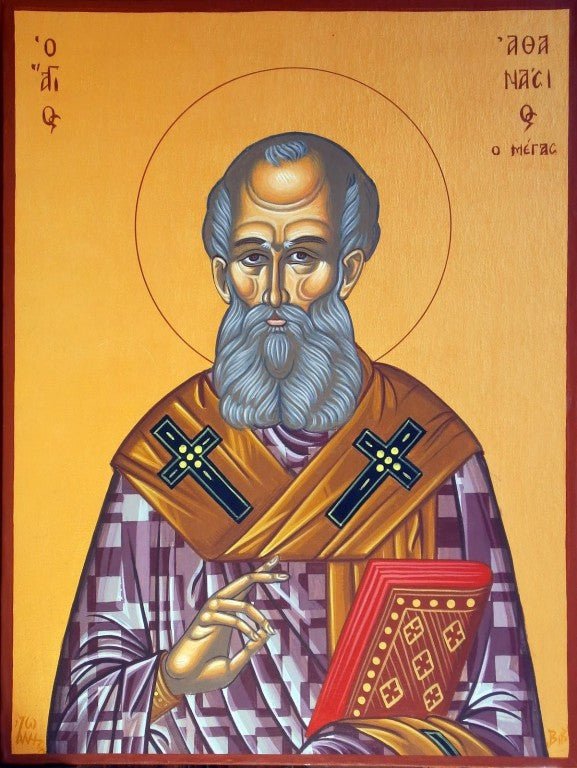Spiritual Articles

There came to me once two brothers who were always rowing, and the elder was saying about the younger, ‘I arrange for him to do something and he gets distressed, and so I get distressed, thinking that if he had faith and love towards me he would accept what I tell him with complete confidence.’ And the younger was saying, ‘Excuse me, reverend father, but he does not speak to me with the fear of God, but rather as someone who wants to give orders. I reckon that this is why my heart has not full confidence, as the Fathers say.’ Impress on your minds that each blames the other and neither blames himself, but both of them are getting upset with one another, and although they are begging each other’s pardon, they both remain unconvinced ‘because he does not [from his heart] show me deference and, therefore, I am not convinced, for the Fathers say that he should.’ And the other says, ‘Since he will not have complete confidence in my love until I show him deference I, for my my part, do not have complete confidence in him.’ My God, do you see how ridiculous this is? Do you see their perverse way of thinking? God knows how sorry I am about this; that we take the saying of the Fathers to excuse our own will and the destruction of our souls. Each of these had to throw the blame on the other… What they really ought to do is just the opposite. The first ought to say: I speak with presumption and therefore God does not give my brother confidence in me. And the other ought to be thinking: My brother gives me commands with humility and love but I am unruly and have not the fear of God. Neither of them found that way and blamed himself, but each of them vexed the other.

You ask if sins of the mind are dangerous? As a monk you know this best. You know that one of the holy fathers has said that the essence of monasticism is the cleansing of the mind of evil thoughts. You also know that the Church lists three types of sin: in deed, in word, and in thought. This is why we pray to the Father of light for the dead, that He would forgive them all sins, whether in deed, in word or in thought. And the fact that God knows the sinful thoughts, you read in the Gospel, “And Jesus, seeing their thoughts, said, ‘Why do ye think evil in your hearts?’”1 Satan did not sin in any other way except through evil thoughts. That is why he was cast out from before the face of the Lord and thrown into Hades.

Brother, you know that God is Love, and that He so loved you that He sent His Son for your salvation, and that His Son died on the Cross for you. Know also that God is leading you not to the restoration of the former Paradise that our first parents lost, but to something altogether new and infinitely greater and more wondrous. Do not turn back to gaze upon that which Adam lost for you, but look ahead to that which God has promised you, where our Lord Jesus and the Holy Spirit are leading you. Yes, together with Adam we lost a great deal: Paradise, joy, and the possibility of immortality: great and wondrous things. But know that in your salvation you will receive immeasurably greater and more wondrous things. Because Paradise, which our first parents enjoyed, and the Kingdom of Heaven are not one and the same. The former was earthly, but the latter is heavenly. Adam lost a beautiful garden, planted by God and called “paradise,” but you are called to live in the Heavenly New Jerusalem, which is not yet built but which is already prepared and able to come into being, whose grandeur is revealed to us in part by the divine Saint John the Theologian (Rev. ch. 21, 22) …

God has commanded us to put an end to our quarrels and strife and to forgive insults not because He needs these things, but because they are beneficial to us. Whoever forgives his neighbor’s sins will himself receive pardon from God according to the promise of the Savior, and how many sins we have before God! What fear should come over us when we remember that we will have to answer for all of them at the Day of Judgment! To our great shame, all our dark deeds will be revealed to the universe at the terrible Judgment of God. Then we will not be able to expiate them in any way. However, now the Savior is offering us an easy way to erase all our sins: “Forgive, and you shall be forgiven” (Luke 6:37). Forgive from your heart the small sins of your brother against you, and you will receive pardon for all your countless sins before God! Is there anything better and more favorable than this? If love for God and His holy commandments cannot make us forgive, then let us forgive for our own interest at least! But alas, often not only the high motives of disinterested virtue, but even the insistent calls of our own interest are not able to induce us to forgive. Our spitefulness has blinded us so that it has made us our own greatest enemy. In strife we are going against God with open eyes; we aim the blade of our spite at our own heart; we poison our health; and we ourselves seek eternal doom for our soul. Is there anything more foolish than this?

Many, crowding to the fast, pollute themselves in the thoughts of their hearts, sometimes by doing evil against their brethren, sometimes by daring to defraud. And, to mention nothing else, there are many who exalt themselves above their neighbours, thereby causing great mischief. For the boast of fasting did no good to the Pharisee, although he fasted twice in the week1, only because he exalted himself against the publican. In the same manner the Word blamed the children of Israel on account of such a fast as this, exhorting them by Isaiah the Prophet and saying, ‘This is not the fast and the day I have chosen, that a man should humble his soul; not even if thou shouldest bow down thy neck like a hook, and shouldest strew sackcloth and ashes under thee; neither thus shall ye call the fast acceptable2.’ That we may be able to show what kind of persons we should be when we fast, and of what character the fast should be, listen again to God commanding Moses, and saying, as it is written in Leviticus, ‘And the Lord spake unto Moses, saying, In the tenth day of this seventh month, there shall be a day of atonement; a convocation, and a holy day shall it be to you;and ye shall humble your souls, and offer whole burnt-offerings unto the Lord3.’ And afterwards, that the law might be defined on this point, He proceeds to say: ‘Every soul that shall not humble itself, shall be cut off from the people4.’

